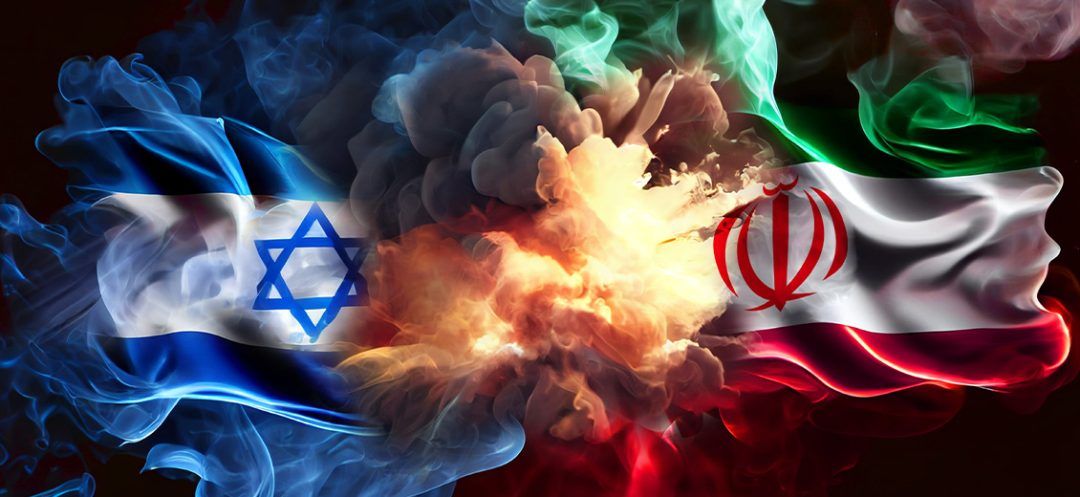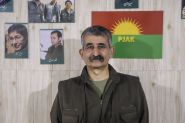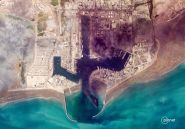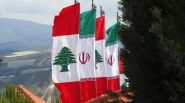- Home
- Middle East
- Shifting Paradigms

The concomitant assassination of Ismail Haniyeh and Fouad Shukr is a major turning point in the surrogate war which opposes Iran and Israel. This came at the heels of a deadly attack on Israeli territory, whereby the children of Majdel Shams, a Druze town in the Golan Heights were deliberately targeted by Hezbollah. The sudden attack pinpointed Iran’s determination to challenge Israel’s security and complement the encirclement strategy attempted on the triangular fronts of Gaza and the West Bank, South Lebanon, and East-West Syria. The intelligence and operational masterstroke have demonstrated Israel’s preparedness and ability to act swiftly and effectively when challenged and forced to do so. Otherwise, it highlights the fact that the adjustment to the fait accompli is no longer part of its political repertoire.
Since the October 7, 2023 pogrom, existential threats have created a strategic divide between what has happened and what is yet to come. The current strategic balances have been severely tested. US and European diplomatic efforts have been limited to truce-making, humanitarian aid facilitation, and logistical problem-solving. The assertive US mediation efforts, focused on negotiating truces and resuming peace talks between Israelis and Palestinians, failed to bridge the divide and overcome the challenges of irredentism on both sides. One wonders whether imperial politics are likely to adjust to self-limitation and bend to the overpowering sway of international pressure especially since Iran is in a bind: the withering legitimacy of the Islamic regime, the deadweight of a bankrupted economy, the disillusions of a discredited dystopia, and the impact of international sequestration. The Islamic regime's survival overrides the reformist agenda's imperatives based on international normalization and internal liberalization and their dialectical relationship.
The combined assassinations convey a strong Israeli message whereby the State of Israel is unwilling to abide by the enduring state of uncertainty, open hostility, and perpetuating strategic imponderables: zero tolerance towards the hazardous borders, the Lebanese fictitious sovereignty, the lackluster peace monitoring in South Lebanon and Iranian free-roaming, the moldering conflict in Gaza, and the endless diplomacy shuttling between warring factions who were never able to overcome their mutual distrust, their moral disagreements, the demonization of the State of Israel, and their inability to build a working partnership towards peace. The whole legacy of peace-making and agreements adjudicated by the international community is at a nadir and disappeared from the diplomatic landscape.
The Iranian sabotaging strategy is based on strategic and ideological considerations that perceive Israel as a major impediment to its regional domination strategy and projects itself as the ultimate winner of a long-haul war of attrition. On the other hand, Israel’s political landscape has radicalized under the spur of ideological and strategic shifts, and Israelis, by and large, have pulled away from the two-state solution. The Palestinians have failed, so far, to forge a working internal consensus and have fallen into the pitfalls of political manipulation by competing Islamic power politics. The cycles of violence are no happenstances, they are the outcomes of a state of pervasive insecurity, and mutual anathematization, paired with ideological, political, and strategic choices.
These observations suggest two possible scenarios: either the pursuit of open-ended mediations with no further expectations than dampening the intensity of conflicts rather than eradicating them, or the reconfiguration of power balances and the redrawing of geopolitical coordinates. Iranian imperialism is vocal about its nihilism and Turkish power politics reiterate the same incendiary rhetoric about the annihilation of the State of Israel. Israelis, notwithstanding their political and ideological differences, are hell-bent on securing their borders, and challenging the narratives featured by Iran and Turkey. Nonetheless, the US truce proposal should be used as a springboard to initiate direct negotiations between Israelis and Palestinians and put an end to the politics of denial on both sides. In addition, the looming strategic landscape in the Middle East reflects the rising global power rivalries, their meandering courses, and their detrimental effects on achieving a negotiated solution.The mutating strategic landscape pursues the corroding course that followed the twilight of the "Arab Spring" challenged by Islamic imperialism and its de-territorialized coordinates and worldviews (The Islamic Ummah), discretionary interventionism, and a decaying State and inter-state system.
This volatile geopolitical and geostrategic context is subject to unchecked power politics, geopolitical re-engineering, and potential civil conflicts. Israel is resolute in addressing strategic threats and aligning with actors who are willing to reshape the Middle East’s political landscape. The management of chaos and the border patrolling of decaying countries transformed into operational platforms for Iranian imperialism are obsolete stratagems and dysfunctional political and strategic schemes. One wonders whether ongoing shuttle diplomacy can effectively contain current conflicts, restore peace dynamics, prevent state collapse, and help fractured political entities rebuild their national and state structures. The aim would be to establish a consensual national legitimacy and set the Middle East on a path toward active diplomacy, democratic reforms, and constitutional statehood.
The prospects are not that bright and the course of events is of bad omen.
Read more



Comments